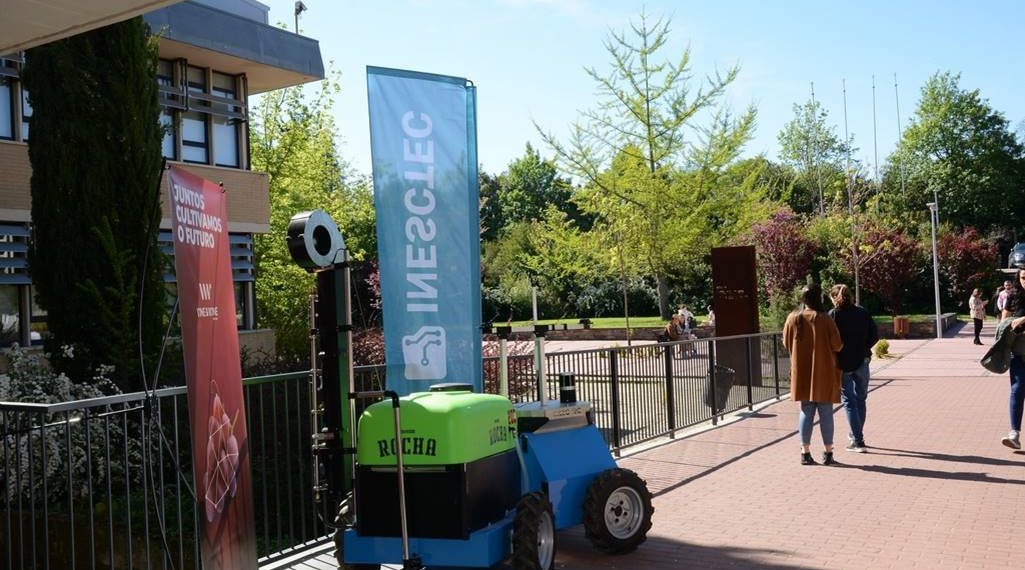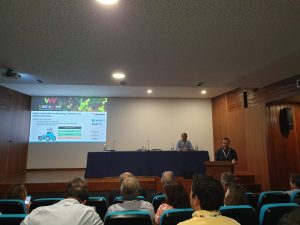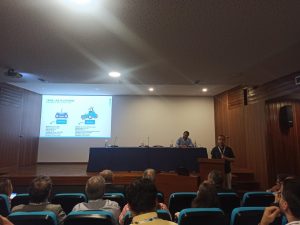The main objective of the Vine & Wine Portugal Agenda, supported by the Recovery and Resilience Plan (PRR) is to promote energy transition and digital innovation, while generating added value through the Portuguese winemaking sector. The development or presentation of mature technologies will be a key-element of the project, enabling the promotion of a more sustainable and environmentally friendly production – aspects that are quite relevant to a sector that’s highly influenced by climate change.
The project – featuring 46 entities, including INESC TEC – focuses on the development of robotic technologies, Internet of Things (IoT) and Artificial Intelligence, which allow increasing profitability (from the vineyard to the consumer) by reducing costs and increasing efficiency in the production process. Moreover, the project also foresees the development of innovative treatment and fertilisation solutions that reduce the ecological footprint associated with wine production.
“The introduction of new technologies will hopefully promote greater competitiveness and resilience within the winemaking sector, which will simultaneously act as cause and consequence of attracting new consumers, both national and international”, said Filipe Neves dos Santos, researcher at INESC TEC, adding that the Vine & Wine project aims to contribute to new solutions that address issues like labour shortage, environmental impact of vineyard treatments, and the costs of wine production.
According to Filipe Neves dos Santos, “we will provide tools to support producers in the development of new added-value products, based on even more sustainable practices”. This will allow producers to obtain important certifications for their recognition and position in the markets. The territory will also benefit from this project, since other players will be able to resort to a nationally and internationally recognised brand, in environmental terms.
With the solutions presented, the project aims to address the scarcity of human resources in the sector, as well as the need to reduce the costs of implementing greener techniques. This initiative also aims to reduce the costs of irrigation, considering the real needs of the vineyards and the fluctuating costs of energy.
INESC TEC is part of the Vine & Wine Agenda consortium, together with companies, universities, and associations. The Institute will lead the development of robotic technologies for monitoring processes, fertilisation, testing of automatic harvesting concepts, and the exploration of solutions for the optimisation of energy consumption in the winemaking sector.
In addition to Filipe Neves dos Santos, coordinator of TEC4AGRO-FOOD, INESC TEC Initiative for Agro-Food and Forestry, INESC TEC is represented by Tatiana Pinho and Luís Santos, researchers at the Centre for Robotics in Industry and Intelligent System (CRIIS), and Conceição Rocha, researcher at the Centre for Power and Energy Systems (CPES).
The 46 members of the consortium met in April at the University of Trás-os-Montes and Alto Douro to update the status of each sub-project, but also to share synergies between the different products and services.
The researchers mentioned in this news piece are associated with INESC TEC.





 News, current topics, curiosities and so much more about INESC TEC and its community!
News, current topics, curiosities and so much more about INESC TEC and its community!